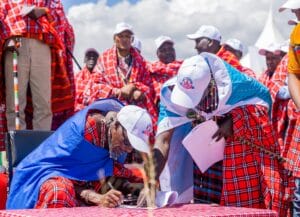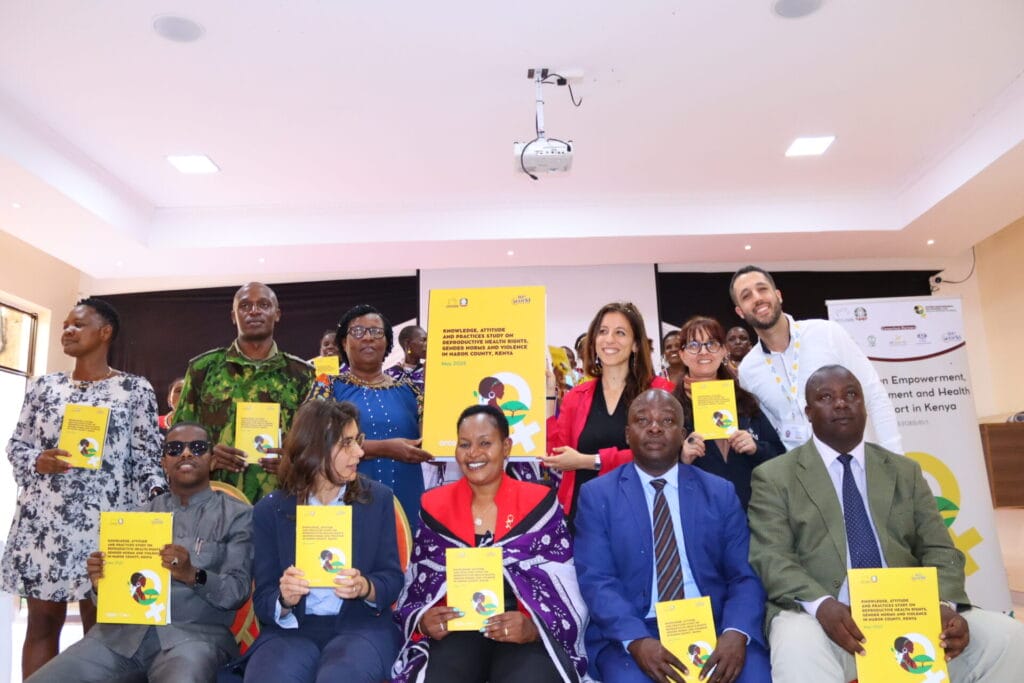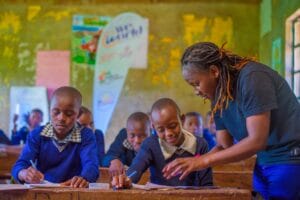
A landmark study analyzing knowledge, attitudes, and practices related to reproductive health rights, gender norms, and violence in Narok County, Kenya, was officially launched on the 22nd of May in a collaborative event featuring the Italian Agency for Development Cooperation (AICS), WeWorld, ARCO-PIN and the Narok County Government, as well as members of the community. The Study, conducted under the IMARA Project, provides critical insights into the prevailing social norms and systemic challenges affecting women and girls, calling for immediate and coordinated action.

The study presents findings from a comprehensive research initiative led by WeWorld and ARCO–PIN, conducted in 2024 across the four sub-counties of Narok Central, East, North, and South. The research engaged 671 survey respondents and included 48 participants in focus group discussions and key informant interviews.
The result is a detailed mapping of the key drivers of gender-based violence, including harmful practices such as FGM and child marriage, as well as the barriers to menstrual health and rights. The study also outlines a locally grounded agenda aimed at transforming gender dynamics and strengthening sexual and reproductive health rights across the County.
“The findings of this study are a wake-up call. They demonstrate that despite existing legal frameworks, harmful practices continue to thrive due to entrenched social norms and insufficient community-level engagement,” said Caterina Arciprete, Researcher at Inclusive Development Unit at ARCO.
Key findings point to deep gender inequities
Some of the study’s most alarming findings reveal the deep-rooted nature of gender inequality in Narok County. A staggering 77% of respondents believe that women should tolerate gender-based violence to maintain family unity. Half of the women surveyed know someone who experienced physical abuse in the past year. More than half reported persistent stigma around menstruation, and nearly one in four were aware of a girl who had undergone female genital mutilation (FGM) within the last 12 months.
The report also exposes a troubling disconnect between legislation and lived reality. Despite Kenya’s progressive laws prohibiting FGM and child marriage, these harmful practices continue - often concealed within entrenched community norms and informal justice systems. Out-of-school girls are especially at risk, frequently facing early pregnancies, forced marriages, and limited economic prospects.
A call for bold local action
The study puts forward a comprehensive set of recommendations to address these challenges. It advocates for the establishment of safe houses, the reinforcement of community-based reporting systems, improved menstrual hygiene management, and the scaling up of prevention efforts in both schools and communities. Crucially, it calls for the active involvement of local influencers—such as religious leaders, teachers, and healthcare providers - to help drive change from within and reshape deeply rooted social norms.
“Transforming the social narrative around violence and SRHR begins with education and grassroots leadership,” noted one of the study’s lead researchers. “Empowering youth and local champions is not just important - it is essential.”
Next Steps
The study provides a strong foundation for evidence-based programming and policy advocacy in Narok County. Looking ahead, the IMARA project will deepen its collaboration with county authorities and local communities to ensure that the voices, rights, and needs of women and girls are placed at the heart of ongoing development efforts.
“This is not just a report. It is a call to action. And it is a promise to the women and girls of Narok County that their dignity, safety, and future matter,” said the First Lady of Narok during the launch.



